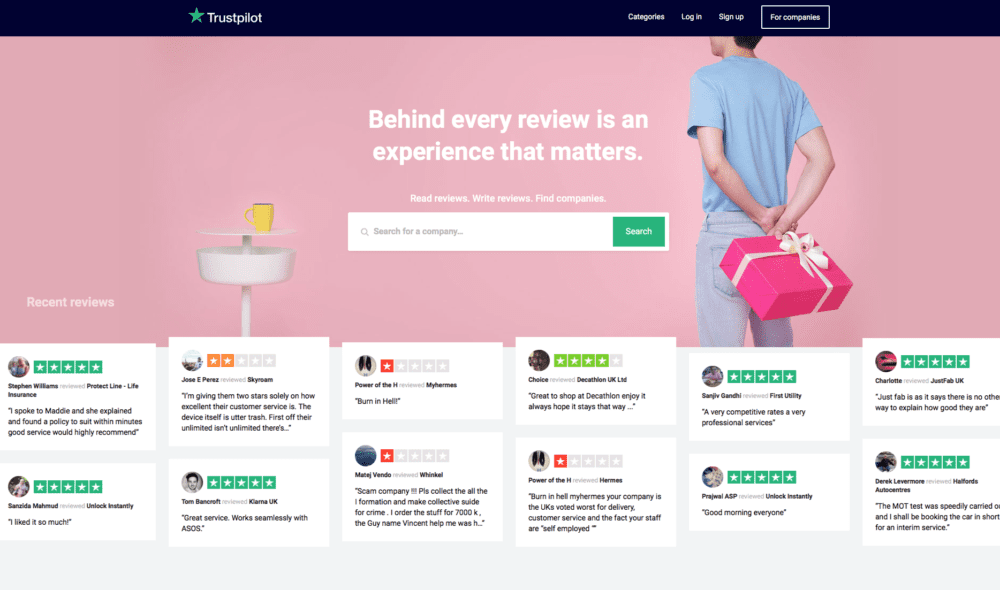A Trustpilot survey of UK consumers has found that over half of Brits now consider a brand’s stance on social, political and environmental issues before buying products or services — with 94% saying a brand’s honesty and transparency is important when it comes to purchasing decisions.
The survey asked consumers what factors make them less likely to buy from a brand and found that those which have ‘unfair or harmful practices’ against employees and suppliers was the biggest turn off — with 51% (507) of respondents saying it would make them unlikely to purchase from them. Second highest, at 49% (409), was brands which ‘appear to be dishonest or boastful in their marketing’; for example by over-exaggerating their environmental impact by greenwashing. The third highest reason was brands which ‘ignore customer experiences and feedback’, suggesting customer service remains a high priority to consumers despite the shifting retail landscape from bricks-and-mortar to online.

The research also asked consumers where they go to find out independent information about a brand’s honesty — including its position on social, political and environmental issues — before making purchasing decisions. It found the top three sources were social media (44%), friends and family (43%), and user-generated reviews websites (43%) — revealing the growing power consumers now hold in influencing how other consumers spend over other more traditional sources. In contrast, just 31% of consumers said they would seek out this information from mainstream media such as TV and radio.

Alicia Skubick, Chief Marketing Officer at Trustpilot, said: “While more brands are working to reflect the big issues of the day by adopting ethical stances, this research shows that they need to not just act with purpose, but also with integrity — really understanding and representing the values of the customers they are trying to target.
“Our research gives brands a roadmap to honesty ensuring they connect to the growing numbers of consumers who want political, environmental, or sociological issues taken seriously. The reality is — thanks to the growing number of consumers sharing and seeking information from independent sources such as review platforms and social media — brands which aren’t acting with their customers’ values in mind now risk being left behind.
“These days a business is no longer what it tells you it is, but what the consumers say it is.”
The research was commissioned by Trustpilot as part of its report, Brand integrity: the final frontier for marketing, which aims to find out how much consumers care about the honesty of brands they shop with. In a world of declining trust and misinformation, Trustpilot works to connect businesses with consumers by gathering open, honest feedback, which helps consumers shop with confidence and businesses improve their service. The report comes as part of the company’s aim of becoming a universal symbol of trust.
















